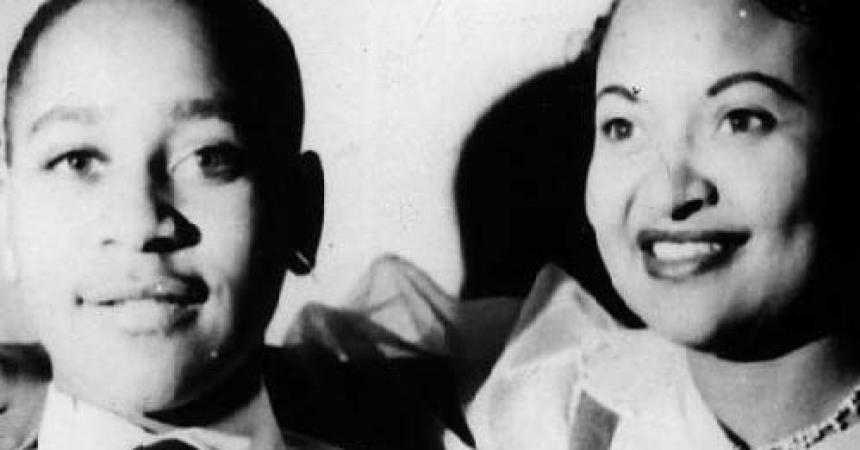“ t’s a very bits and bobs piece of writing.” This is how, apparently, you use the phrase “bits and bobs” in a sentence, according to the all-knowing Internet. Basically, the phrase means small pieces put together. Let us hope these pieces are artfully put together as today’s post is a bits and bobs piece of writing, an expression, by the way, I’d never heard until a British friend happened to use it.
t’s a very bits and bobs piece of writing.” This is how, apparently, you use the phrase “bits and bobs” in a sentence, according to the all-knowing Internet. Basically, the phrase means small pieces put together. Let us hope these pieces are artfully put together as today’s post is a bits and bobs piece of writing, an expression, by the way, I’d never heard until a British friend happened to use it.

WHY BITS AND BOBS
Well, first because it is rather silly sounding. “Bobs” suggests a group of persons named Bob. Or the result of bobbing up and down in the water. She did 12 bobs even though she was afraid of the water, type of thing. “Bits” is more straight-forward.
Second, some dear readers have told me interesting tidbits related to particular posts. (There’s that idea of “bits” again. What do you think “tids” could be?) A tender morsel, apparently. I’ve selected two comments, one responding to the post about math and the other to Emmett Till.
Keep those comments coming!!
MATH
(No!)
Remember the Facebook equation 8 ÷ 2(2+2) = ?
- Modern approach: Clear the parentheses (2+2). That’s 4. The equation is now 8 ÷ 2 x 4 = ?
Because multiplication and division are the same order of precedence, you go from left to right:
8 ÷ 2 x 4 = ? What we have now is 8 ÷ 2, which equals 4, and then x 4. Result is 16.
- We also had the 1917 approach, where the parentheses were cleared inside: (2 + 2) equalling 4. But the brackets are not simply erased because we say clear the number inside the brackets.
So the equation would be 8 ÷ 2(4) or 8 ÷ 8. And 8 ÷ 8 = 1.

What happened between 1917 and now? Well, nothing. My favorite mathematician wrote to say that she, too, would have arrived at the answer of 1 as the equation was written, never mind Google. The problem is with the way the equation is written. The notation is ambiguous.
To make it unambiguous, she writes, you would need to have:
Either 8 ÷ (2(2+2)), which equals 1,
Or (8 ÷2)(2+2), which equals 16.
The clarity of math and the precise mind of a friend, what could be better?
EMMETT TILL (1941 -1955)
The mention of his name is like a gong, with the sound travelling back in time to a terrible era in American history and then forward as an inspiration for change and justice for African Americans. John Lewis wrote that Emmett Till was his George Floyd.

One account says that the 14-year-old Emmett Till from Chicago was spending the summer down in Mississippi visiting family, where he was tortured, shot, and then tied to a cotton gin fan before being dumped in the river. The courage of Emmett Till’s mother, Mamie Elizabeth Till-Mobley, was remarkable for showing her brutally disfigured son in an open casket for all the world to see the crimes of the Jim Crow South.
LOUIS TILL (1922-1945)
Thanks to one of my most favorite English profs, I learned of a strange peculiarity about Louis Till, the father of Emmett Till. While Louis Till died in Italy, he was buried in France. How did all this happen, you might wonder.
Louis Till was an American soldier. While serving in the Italian theatre in WW II, Till was arrested, court martialed, and, along with another soldier, executed by hanging for the crimes of murder and rape. He died in Pisa on July 2, 1945. His death was briefly immortalized by the famous modernist poet Ezra Pound, also in prison with Till. Pound’s crime was collaborating with the Nazis and the Fascists. The lines in Pound’s Pisan Cantos read, “Till was hung yesterday / for murder and rape with trimmings.” In 2016, John Edgar Wideman, an African American novelist also wrote a book about Till called, Writing to Save a Life, the Louis Till File, in which he raises questions about the conclusions drawn about Louis Till.
WHY FRANCE?
It so happens that there is a dedicated cemetery for those US soldiers who were court-martialed and executed after being convicted of rape / murder. Located in Oise-Aisne, in northern France, about 70 miles northeast of Paris, this American Cemetery houses the remains of almost 600 unknown soldiers as well as other fallen soldiers in Plots A – D.

Plot E, however, is reserved for those called “the dishonorable dead.” Ninety-six American soldiers who were executed for crimes of murder or rape, are interred here. Separated from the main cemetery, it’s more like an anti-memorial with just sunken grave markers, each the size of an Index card, with a number on it.
FATHER AND SON
You may remember that the two murderers of Emmett Till were the husband of the woman Till whistled at, and said husband’s half-brother. After these two were acquitted in September of 1955, they sold their story to Look Magazine, freely admitting to the murder. But they were never tried again. A grand jury, convened in December of that year, failed to indict the two murderers after having gleaned from the media reports of Louis Till’s execution, a report that had been kept strangely under wraps for ten years. Somehow Look had reported that Till had died fighting for his country in France, which was wrong. Southerners took this bad reporting as signs of a cover-up on the part of the liberal media, even though Look later retracted what they reported. Not only slavery, but also the sexual threat of the black male body was life-threatening in the south. Only since 1967 has interracial marriage been legal.
GODOT
To cast our beloved vagrants, Vladimir or Estragon, as black men—how would that change the dynamic? The play was produced in London with an all-black cast in 2012. In a review in the Guardian, we learn that the artistic director and the play’s director “insist they’re not aiming to evoke a specific time or place – the script is calculatedly vague – things have crept in. [The actors] Kissoon and Robinson give Beckett’s text a subtly African-Caribbean flavour (“digging into our own ethnicity” is how Robinson puts it), making Vladimir and Estragon seem less like tramps or clowns, and more like men in unfamiliar surroundings, perhaps waiting for a new life to begin. “There’s Windrush somewhere in the background,” reflects [the artistic director] Cumper, referring to the ship that brought West Indian migrants to Britain in 1948. “They arrived with these expectations – they could have gone to Paris, they could have gone somewhere else, but they ended up here.” Interesting.
https://www.theguardian.com/stage/2012/jan/31/all-black-waiting-for-godot
BOOKS
The Girl With the Louding Voice by Abi Daré. Not the Caribbean, but in Nigeria, we find a young woman struggling to find her voice, not just to express herself, but to help her family and community. For that she needs a “louding voice.” Here’s a paragraph early in the book when her papa calls her to him: “I know he want to tell me something bad. I can see it inside his eyes; his eyeballs have the dull of a brown stone that been sitting inside hot sun for too long.” Indeed, her father is marrying her off, despite his promise to her mother on her deathbed. Many difficulties arise, but the main character, Adunni, taps resources far beyond her years to finally get what she has been seeking all along.
May we all be lucky like that!